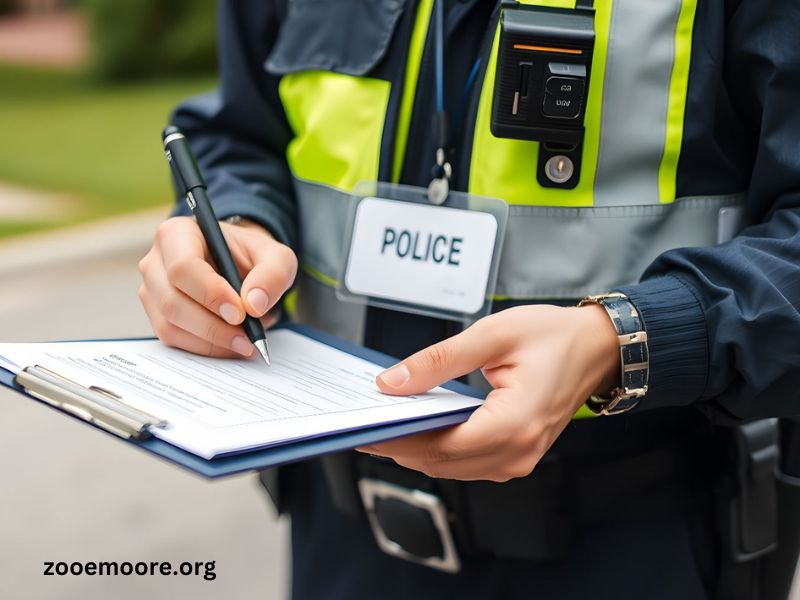In an astonishing turn of events that made headlines and left many scratching their heads, a Georgia man was slapped with a staggering $1.4 million speeding ticket. This extraordinary incident not only raises questions about the nature of traffic laws but also serves as a cautionary tale about the potential consequences of reckless driving.
The Incident
The story unfolded on a seemingly ordinary day in Georgia when a man, whose identity has not been disclosed for privacy reasons, was caught driving at an outrageous speed on a local highway. Reports indicate that he was traveling at a speed significantly above the legal limit, prompting law enforcement to pull him over.
While the specifics of the speed involved were not clearly outlined, eyewitnesses described the incident as surreal. Police officials stated that the man was not just speeding; he was endangering himself and others on the road. The hefty fine was not a random number; it was calculated based on various factors, including his prior traffic violations and the reckless nature of his driving.
The Breakdown of the Fine
At first glance, a $1.4 million speeding ticket seems excessive, if not outrageous. However, traffic laws in many jurisdictions can impose hefty penalties for repeated offenders or dangerous driving behaviors. In this case, the sum may have been influenced by several factors:
- Previous Offenses: If the man had a history of traffic violations, the penalties for his latest infraction would likely have been increased. Many states employ a point system where habitual offenders face escalating fines and penalties.
- Reckless Endangerment: Depending on the specifics of the case, the authorities may have deemed his behavior as reckless endangerment, which can come with steeper fines.
- Deterrence: Such a significant penalty can also serve as a deterrent to others who might consider driving recklessly. Law enforcement agencies often advocate for stringent penalties to encourage safe driving habits among the public.
- Legal Loopholes: Some jurisdictions allow for the imposition of fines based on a percentage of the driver’s income or net worth. This could lead to astronomical fines for individuals with substantial financial resources.
While this fine may sound preposterous, it’s essential to remember that there is precedent in other parts of the world for extreme penalties related to traffic violations.
Public Reaction
The public response to the $1.4 million ticket was a mix of disbelief, outrage, and humor. Many took to social media to express their opinions, with some calling for more stringent enforcement of traffic laws while others argued that such a fine is simply unrealistic.
Memes and jokes quickly circulated online, with many poking fun at the absurdity of the situation. “What do you do when you get a speeding ticket? You pay it off with your life savings!” one meme quipped. This blend of humor and disbelief illustrated the public’s fascination with the story and highlighted the broader conversation about traffic regulations and their enforcement.
Legal Ramifications
The man’s encounter with the law did not end with the issuance of the ticket. Given the extreme amount, it is likely that he will challenge the ticket in court. The legal proceedings that follow could potentially reveal more about the circumstances surrounding the incident and the rationale behind the staggering fine.
Legal experts suggest that if the man does decide to fight the ticket, he may have several avenues available to him. He could argue that the fine was disproportionately high or that the enforcement of the law was not appropriately applied.
Additionally, there are discussions regarding the possible implications of such a fine on other drivers. If courts uphold excessive fines, it may lead to a significant shift in how traffic violations are perceived and punished across the country.
The Bigger Picture: Traffic Violations and Penalties
This incident brings to light larger issues surrounding traffic laws and their enforcement. In recent years, there has been a growing conversation about how to effectively manage reckless driving and ensure road safety.
- Rising Traffic Fatalities: The United States has seen a concerning rise in traffic-related fatalities. In 2021, the National Highway Traffic Safety Administration reported a significant increase in fatalities, raising alarms about the need for stricter enforcement of traffic laws. Incidents like the one in Georgia may prompt lawmakers to reevaluate how penalties are structured.
- Public Awareness Campaigns: Many advocacy groups are pushing for more public awareness campaigns focused on the dangers of speeding and reckless driving. Educating drivers about the potential consequences of their actions may be more effective than exorbitant fines.
- Technology and Enforcement: The role of technology in enforcing traffic laws has grown, with many jurisdictions using speed cameras and other monitoring systems. As these technologies become more widespread, it raises questions about fairness and the accuracy of enforcement.
- Rehabilitation vs. Punishment: Some experts argue that a more rehabilitative approach to traffic violations could lead to better outcomes. Instead of simply imposing hefty fines, courts could require offenders to attend driving safety courses or participate in community service.
Conclusion
The case of the Georgia man and his $1.4 million speeding ticket is an extraordinary example of how the intersection of law, public safety, and individual behavior can lead to unprecedented outcomes. While the fine may ultimately be reduced or challenged in court, the incident serves as a stark reminder of the importance of adhering to traffic laws.
As society continues to grapple with rising traffic fatalities and reckless driving behaviors, discussions about effective enforcement and penalties will undoubtedly intensify. Whether through increased fines, educational campaigns, or technological advancements, the overarching goal remains the same: to make the roads safer for everyone.
As this story unfolds, it will be interesting to see how it influences public opinion, legal practices, and traffic regulations in the years to come. For now, it serves as a potent reminder that sometimes, the consequences of our actions can be far more significant than we ever imagined.



